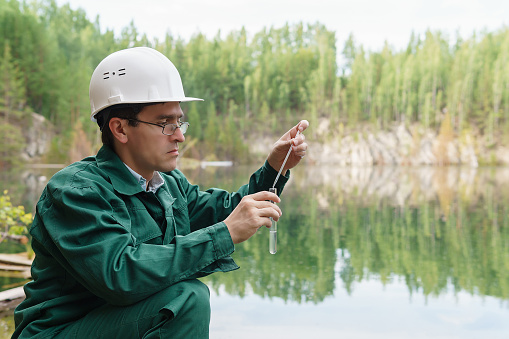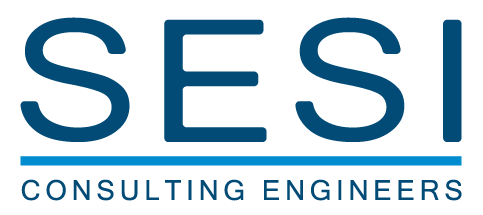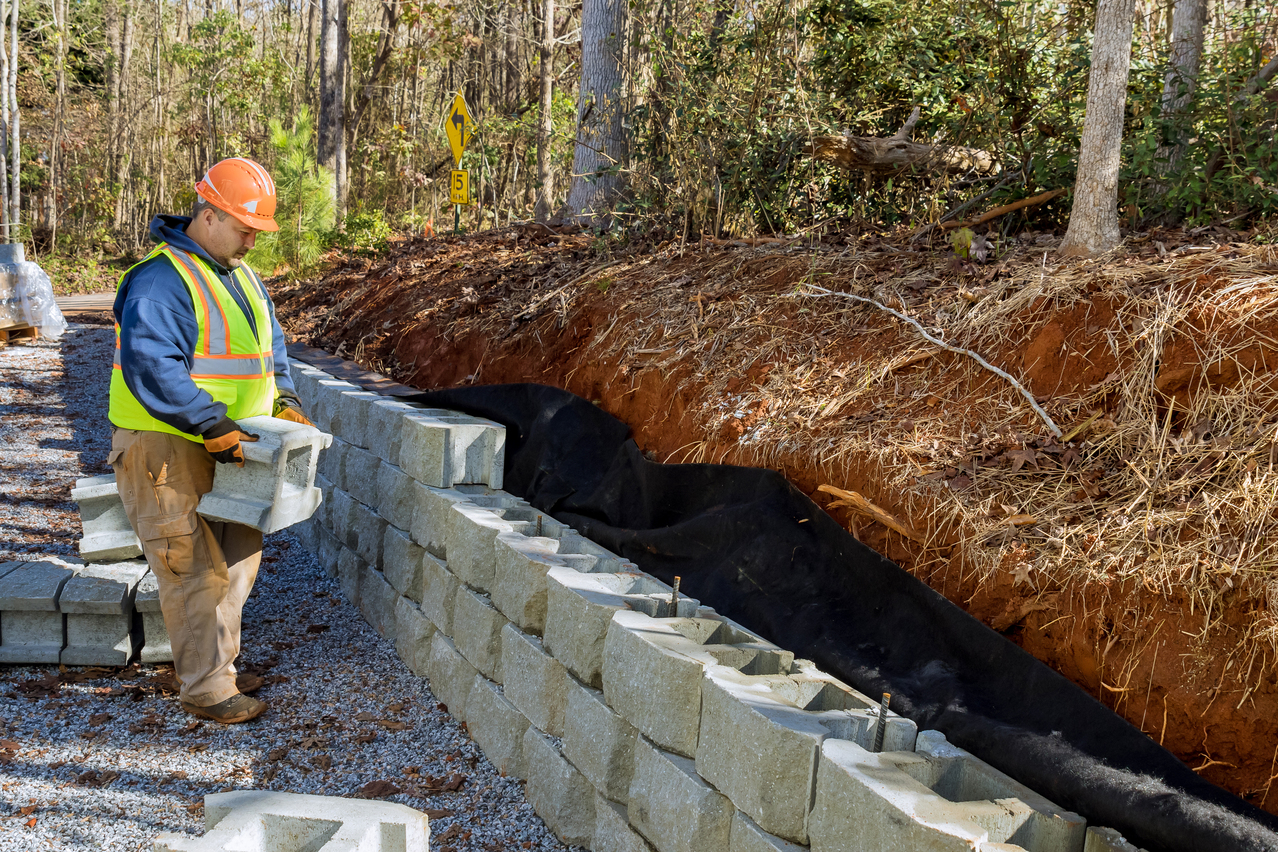SESI's team came up with a geotechnical strategy to manage the significant ground settlement the project was facing. This included a management plan to account for different settlement rates within a single building footprint as well as across 3 separate buildings.
SESI is hiring for Geotechnical, Environmental, and Site Civil positions. Apply Now!
Innovative Environmental Engineering Services
SESI Consulting Engineers provides environmental engineering services including due diligence, design, and remediation services for all facets of the construction and real estate industry. SESI’s partnership with our Clients helps to protect buyers from environmental liability; brings underutilized and environmentally impacted Sites back to productive use; and serves to protect human health and the environment. SESI provides industry-leading solutions to all projects, including the most complex environmental sites.
Our Environmental Engineering Solutions & Consulting Services
The following is a list of the environmental engineering services that SESI provides to our clients:

Bench Scale Treatability Studies
We use site samples to determine the best treatment options based on specific contamination and site variables such as lithology, soil/groundwater chemistry, contaminant chemistry, and treatment byproducts.
Brownfield Site Redevelopment
We provide specialty evaluation and remediation solutions for properties with hazardous contaminants to abide by local, state and federal guidelines.

Construction Dewatering and Seepage Studies
We design construction dewatering and treatment systems for site groundwater and stormwater to be discharged into municipal treatment systems, and/or adjacent waterbodies. In addition, SESI provides seepage evaluations and permanent dewatering system designs for sites that require long-term dewatering solutions. We obtain the discharge permits with state and local regulators, where required. We also provide discharge monitoring for dewatering system water to confirm contamination levels.

Environmental Site Assessment and Due Diligence
We evaluate properties as part of proposed transactions and/or strategic positioning for sale. We determine the redevelopment potential of the sites, the feasibility of potential purchase or sale, the economic factors affecting the properties, and the environmental-related risks and liabilities. The process typically includes database inquiries, records searches, interviews and site reconnaissance documented in a Phase I ESA report in NY or a “Preliminary Assessment Report” in NJ. If Recognized Environmental Conditions (RECs) or Areas of Concern (AOC) are discovered, then a Phase II ESA or a “Site Investigation” is performed. SESI has extensive experience with transactions regarding the New Jersey Industrial Site Reclamation Action (ISRA), the New York Brownfield Cleanup Program (BCP), and the Connecticut Transfer Act.

Expert Witness Testimony
We provide fact and expert witnesses who will review information, answer questions that arise after construction from internal or external sources, prepare expert reports, and provide expert testimony.

Fill Evaluation, Characterization, and Management Services
We provide fill evaluation, characterization, and management services to support our clients in meeting the requirements for sourcing fill for construction sites and permitted facilities. In addition, we provide consulting for disposal of excess clean and/or contaminated soils. We use the data collected to determine whether a Site can accept soil sources, to determine which facilities are economical and suitable for use on projects, or for determining offsite disposal options.

Forensic Investigations
We collect and evaluate site samples, historical data, and other available information to reconstruct a site and understand how the property became contaminated. We then determine the liability of various parties and/or evaluate the fate and transport of contaminants.

Groundwater Investigations and Remediation
We evaluate project use, characteristics of the site, and availability of existing information or reports to determine a cost estimate and project feasibility relative to groundwater liability. Our preliminary investigation will determine the hydrologic and geologic characteristics and the contaminant concentrations in Groundwater. Supplemental investigations are completed to determine the extent of groundwater contamination, and the potential solutions for remediation. Remediation may consist of long term monitored attenuation, injections, pumping and treatment, or other innovate solutions to the challenge.

Industrial Site Recovery Act (ISRA)
We investigate and remediate sites and part of property transfers in accordance with the Industrial Site Recovery Act (ISRA). ISRA contains a prescribed process for managing Sites under specific categories of the North American Industry Classification System (NAICS). This process starts with a Preliminary Assessment to determine the specific Areas of Concern (AOCs) at a Site, and then a series of steps that need to be followed to further investigate any AOCs that are identified. Once investigations have been completed, then a remedial action can be implements, followed by Remedial Action Permitting, if required, and a Response Action Outcome (RAO). There are several nuances of this program that trigger the ISRA requirements, and to allow for property transfers to occur without the remediation being completed. SESI has the expertise to navigate this often times complex process.

Landfill Engineering and Closure
We design landfills to be “functionally stable” with leachate and gas collection systems as well as stormwater management systems to preserve public and environmental health.
There are various local, state, and federal regulations a project may be subject to, and we help pinpoint, acquire, and manage appropriate permits. We provide permit and compliance services to confirm that businesses, facilities, individuals and redevelopments follow applicable laws, regulations and codes designed to protect human health and the environment.

Phase I Environmental Assessments (Phase I ESAs) and Preliminary Assessment Reports (PARs)
We handle the first step in environmental due diligence for property transfers, which identifies potential or existing Recognized Environmental Conditions (REC’s) resulting from current and historic site uses and possible effects from adjoining properties. Phase I ESAs are also utilized by lending firms during the potential sale of a property.
In New Jersey, the Phase I ESA process is typically combined with or replaced by the Preliminary Assessment Report (PAR) process depending on the project requirements and type. The PAR is required to start the remedial process in NJ. It is the equivalent of a Phase I ESA, with the exception that a PAR is an NJ regulation, while a Phase I ESA is a voluntary standard. The PAR refers to RECs as Areas of Concern (AOCs).

Phase II Environmental Site Assessment (Phase II ESA) or Site Investigation (SI)
If the results of the Phase I ESA determines that RECs exist, then a Phase II ESA would be conducted. The Phase II ESA consists of collecting and analyzing soil, groundwater, and/or soil vapor samples to check for evidence of contaminant discharges as a result of current or historical activities or operations. This investigation is designed based on the RECs that are identified are part of the Phase I ESA.
In New Jersey, we conduct a Site Investigation (SI) to confirm the findings of the PAR. A SI is a required remedial step in NJ and is done in lieu of a Phase II ESA. It consists of collecting and analyzing soil samples, groundwater, and/or soil vapor samples to check for evidence of contaminant discharges due to current or historical activities similar to the Phase II ESA. This investigation is designed based on the AOCs that are identified are part of the PAR.
Remedial Investigation (RI) and Design
Based on the results of the Phase II ESA or Site Investigation, if further investigation is required, then a Remedial Investigation (RI) will be completed. Typically, an RI consists of collecting and evaluating additional groundwater, soil, and/or soil vapor data to determine the nature and extent of site contamination. The information from the RI is then used to establish the cleanup criteria and/or goals and to support the technical and cost analyses of remedial alternatives. This investigation and evaluation is in turn utilized to design a Remedial Action Workplan for the Site.

Remedial Design and Remedial Action Workplan (RAWP)
Following the remedial investigation process, a conceptual site model and remedial design are completed to confirm the conceptual extent of the contamination and to design steps to remediate it. The RAWP establishes the cleanup goals (objectives and/or standards) that will be attained, and the steps for completing physical remedial work tasks to remediate the contaminated media at the Site. The goal of the RAWP is to establish a plan that can be followed by the remedial contractor to render the Site protective of human health and the environment based on the proposed use.

Sediment Stabilization Design
We provide contaminated sediment capping design using a treatment with a proprietary biopolymer with sand and capping amendments such as activated carbon. This provides an effective capping option that minimizes treatment amendment dispersion in the water column and ensures a homogeneous treatment cap on sediment.








